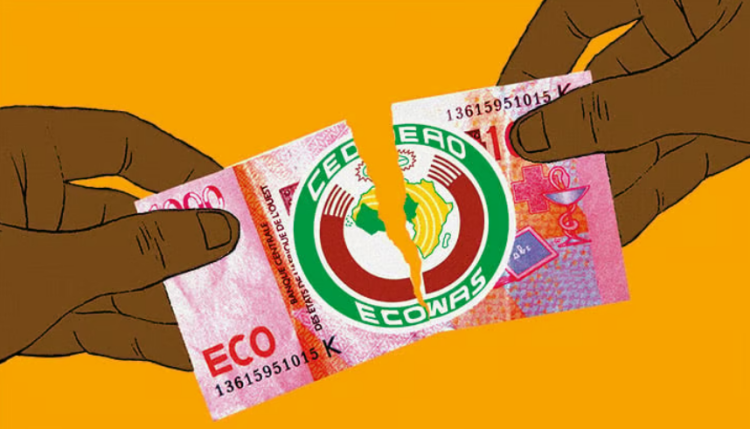By Mohamed Kamara
The ongoing meeting of West African Bank Governors, Finance Ministers, and executives from the West African Monetary Zone (WAMZ) has sparked concerns regarding the implementation of the ECO currency across ECOWAS member states. The anticipated discussions have faltered due to various challenges, notably the economic disruptions caused by the COVID-19 pandemic and previous crises like the Ebola outbreak.
A significant point of contention arises from the differing economic structures among ECOWAS members. Many countries, particularly the francophone nations, utilize the French CFA, which is tied to the French Central Bank. This arrangement requires over 60% of these countries’ foreign reserves to be deposited with the French authority. In contrast, Anglophone nations like Nigeria and Ghana rely on their currencies, such as the Sierra Leonean leone, Nigerian naira, Ghanaian cedi, and Liberian dollar. This divergence raises critical questions about how these currencies will convert to the ECO and the implications for their financial independence.
Experts are particularly concerned about Sierra Leone’s eligibility for the new financial framework within ECOWAS. Originally slated for implementation in 2015 during the previous All People’s Congress (APC) administration, the ECO’s rollout has been delayed, raising doubts about the current government’s ability to navigate the complexities of monetary policy reform. Observers are questioning the benefits Sierra Leone might derive from joining this new financial family, especially given the ongoing political and economic challenges.
Additionally, the recent withdrawal of Mali, Niger, and Burkina Faso from the ECOWAS community adds another layer of uncertainty. The future status of these countries concerning the ECO and their continued use of the French CFA remains unclear.
As discussions continue, the success of the ECO currency hinges on addressing these multifaceted challenges, ensuring equitable conversion rates, and fostering financial independence for all member states in the West African Monetary Zone.








